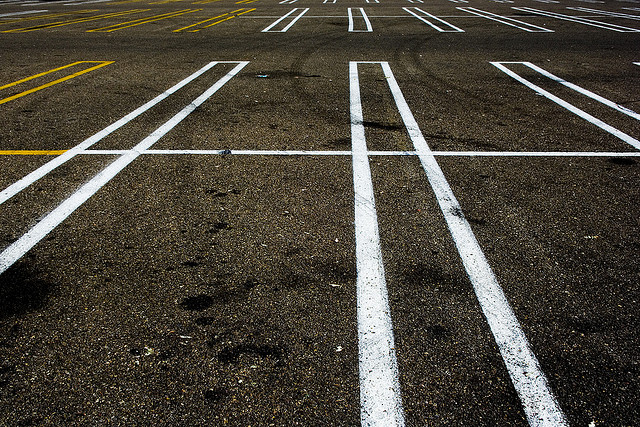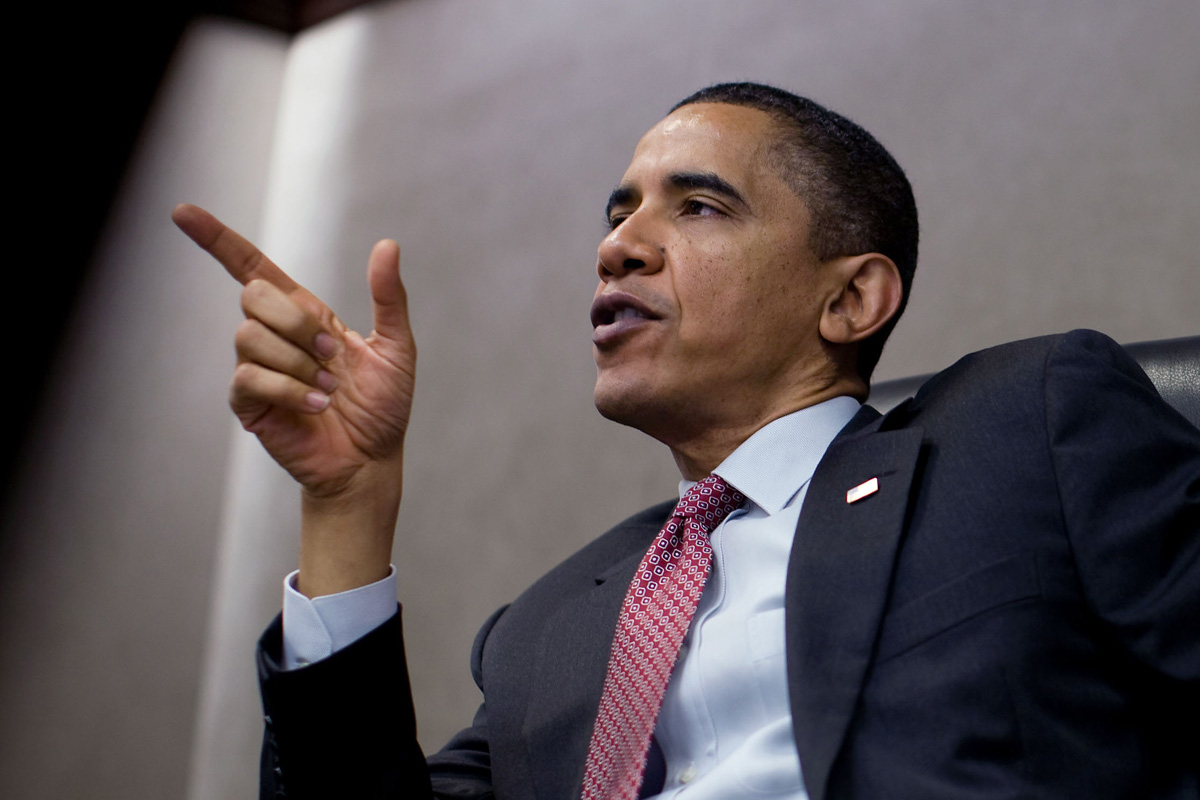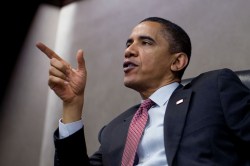President Obama doesn’t seem sold on the economic benefits of the Keystone XL pipeline, which would carry carbon-intensive tar-sands oil from Canada to the Gulf Coast for export.
In his most extensive public comments to date on Keystone, made during an interview with The New York Times, he stressed the neutral or negative economic aspects of the proposed project.
First, he pointed out that Keystone would create few permanent jobs:
Republicans have said that this would be a big jobs generator. There is no evidence that that’s true. And my hope would be that any reporter who is looking at the facts would take the time to confirm that the most realistic estimates are this might create maybe 2,000 jobs during the construction of the pipeline — which might take a year or two — and then after that we’re talking about somewhere between 50 and 100 jobs in a economy of 150 million working people. … that is a blip relative to the need.
In fact, the draft environmental impact statement released by the State Department in March estimates that the pipeline would create just 35 permanent jobs [PDF]. As of June 2013, there were 11.7 million Americans unemployed. After Keystone’s built, we’d be 0.0003 percent of the way toward solving that problem.
Second, Obama noted that the bulk of the oil that would travel through the pipeline would be shipped abroad, providing no benefit to Americans.
[T]hat oil is going to be piped down to the Gulf to be sold on the world oil markets, so it does not bring down gas prices here in the United States. In fact, it might actually cause some gas prices in the Midwest to go up where currently they can’t ship some of that oil to world markets.
Yep. Earlier this month, a report from the nonprofit Consumer Watchdog found that Keystone could raise gas prices by as much as 40 cents a gallon in the Midwest. A report released last year by the Natural Resources Defense Council and two other groups also found that the pipeline would raise gas prices for North American drivers.
As for the climate impacts of the project, Obama’s message was more muddled.
NYT: … You’ve said that you would approve [Keystone] only if you could be assured it would not significantly exacerbate the problem of carbon in the atmosphere. Is there anything that Canada could do or the oil companies could do to offset that as a way of helping you to reach that decision?
MR. OBAMA: … there is a potential benefit for us integrating further with a reliable ally to the north our energy supplies. But I meant what I said; I’m going to evaluate this based on whether or not this is going to significantly contribute to carbon in our atmosphere. And there is no doubt that Canada at the source in those tar sands could potentially be doing more to mitigate carbon release.
NYT: And if they did, could that offset the concerns about the pipeline itself?
MR. OBAMA: We haven’t seen specific ideas or plans. But all of that will go into the mix in terms of John Kerry’s decision or recommendation on this issue.
There’s that word again, “significantly,” the same word Obama used in his big climate speech a month ago, when he first said that climate would be a factor as his administration decides whether to approve the pipeline. At that time, he said he would only OK it “if this project does not significantly exacerbate the problem of carbon pollution.” That statement can be, and has been, interpreted in many different ways. As our David Roberts wrote, it “has proven a kind of Rorschach blot for the energy world.” Obama’s new comments do nothing to de-Rorschach the matter.
It’s notable that the president is trying to counter the GOP’s rah-rah rhetoric about how Keystone will create tens of thousands of jobs and make the U.S. more energy secure. It shows, if nothing else, that Keystone opponents are making their case heard and changing the debate.
Maybe Obama is laying the groundwork for putting the kibosh on Keystone. Or maybe he’s not.
Bottom line: We still don’t know what he’s going to decide. And we probably won’t know for months.




